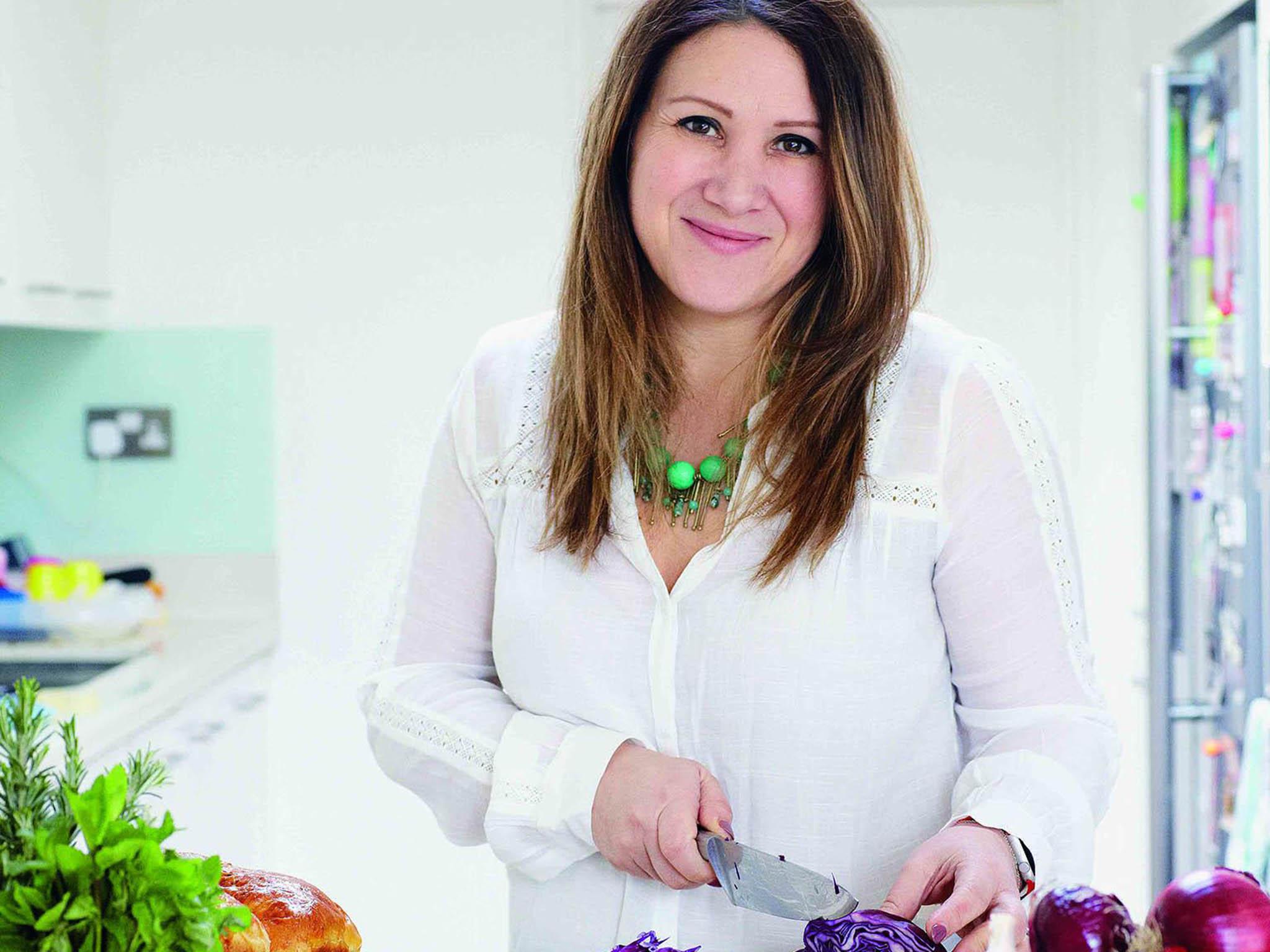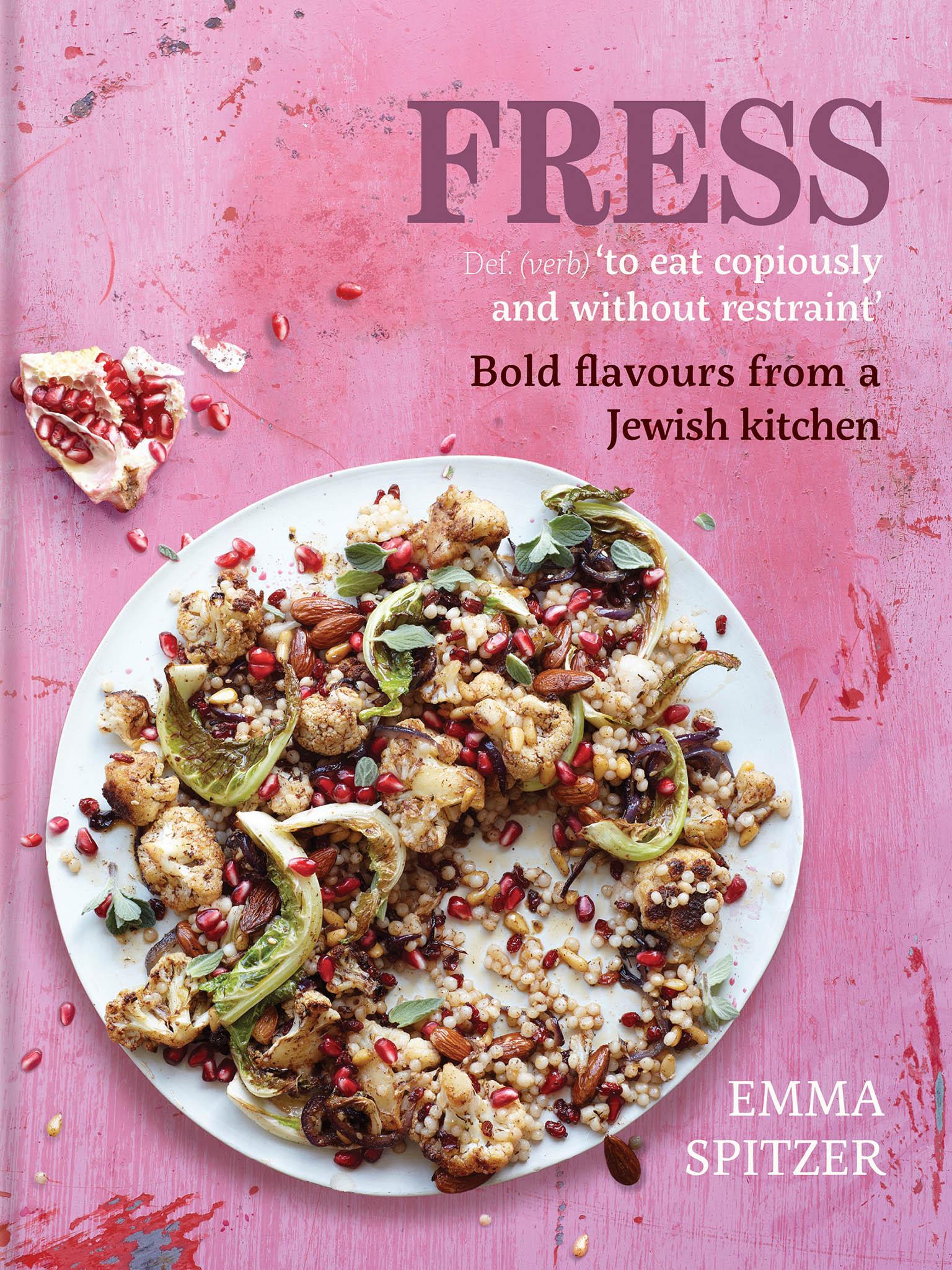Emma Spitzer on keeping kosher and children’s eating
She’s never had a professional cooking lesson in her life but she made it to the MasterChef final. Emma Spitzer talks to Emma Henderson about her family and her heritage

Your support helps us to tell the story
From reproductive rights to climate change to Big Tech, The Independent is on the ground when the story is developing. Whether it's investigating the financials of Elon Musk's pro-Trump PAC or producing our latest documentary, 'The A Word', which shines a light on the American women fighting for reproductive rights, we know how important it is to parse out the facts from the messaging.
At such a critical moment in US history, we need reporters on the ground. Your donation allows us to keep sending journalists to speak to both sides of the story.
The Independent is trusted by Americans across the entire political spectrum. And unlike many other quality news outlets, we choose not to lock Americans out of our reporting and analysis with paywalls. We believe quality journalism should be available to everyone, paid for by those who can afford it.
Your support makes all the difference.Despite cooking since the ripe old age of eight, Emma Spitzer has never had a day of professional cookery training in her life. Despite that, she reached the final stages of 2015’s MasterChef and has just released her first cookbook. But her lack of professional teaching is part of what sets her and her food apart. Her food is uncomplicated to make – free of fiddly skills and processes – but without compromising flavour. At all.
She describes it as comfort food. But don’t confuse that with big hearty stews and stodge. Instead it is about food that she is comfortable with actually cooking. “We all cook the food we love, it doesn’t matter where we come from, but it’s really influenced where I live. So I’m not so comfortable cooking French food or Japanese. But making a hummus is so easy and this type of food is so easy to pick up and run with.”
She calls it “sharing style food produced by a home cook for a home cook”, designed to be put in the middle of the table and well, shared. Although she might meekly compare it to the Israeli-British chef Ottolenghi for a reference point, she makes note that her food is “massively pared down” and doesn’t come near in realms of presentation. But that’s her choice.
Emma has actually done a full 360 in her cooking career, from being a self-named home cook to perfecting her craft and pushing herself to learn more techniques, and back again to the simplicity of the recipes in her cookbook. Succeeding almost to the bitter end, it was MasterChef that encouraged her to push her boundaries and get more technical in the kitchen. But she was adamant that there wouldn’t be anything “in the book that wasn’t in the common kitchen”.
But before the show began, she stuck to her roots and perfected the bases of cooking. Instead of practising how to sous vide anything in sight (as is the fashion), Emma went back to basics in the hope of avoiding the dreaded worst case scenario of going out on the first round. “I did what every MasterChef contestant does, and learned how to cook pasta.” And despite being known as the sauce woman on the show, it wasn't until just before that she really learnt how to make them.
In her book, Emma takes what are traditional dishes from Jewish and Middle Eastern cooking and has given them her own additions, mixing flavours that are not normally partnered. Chicken and pistachio meatballs go with coriander tahini (recipe on next page), she uses coconut milk instead of cream, puts preserved lemons into risotto and combines courgettes with mango powder. “I’ve taken the classics and turned them around slightly, but still making them appealing to people who are observant and are kosher. They are classic for a reason, so I was worried about offending someone,” she says. Luckily that never happened to Emma, on or off the show.
The simplicity of her food makes it accessible for people who’ve never cooked this type of food at home. Her attitude to it is simple – anyone can make it if they give it a go. “I think my book is well aimed at beginners. Anyone can follow Ikea instructions, so they can follow mine too,” she says.
It’s even applicable to her children. There’s just one rule when it comes to meal times, which is all four of her children must try it. “I get frustrated when people say ‘oh they won’t like that’”, when they’re talking about their children and food. For her, it’s about showing children different food and encouraging them to try it. But she notes it’s also important not to force children to eat something they don’t like after they’ve tried it as that stays with you – like many people can’t eat rice pudding because of terrible school lunches.
Being void of a professional environment, Emma’s cookery inspiration comes from her own and her husband’s family. “My influences are a mix; 60 per cent is Israeli and 40 per cent from Morocco from my husband's side.”
Although her mother wasn’t passionate about food, she was a good cook and always ensured there was dinner on the table. Her mother’s fish ball recipe is one of the only ones that she has not changed at all, she says. “There was nothing that needed to be added to it”. But when it came to first cooking for her mother in law, it was more of a nerve wrecking experience. “It was funny, because often I would see her stick a spoon in whatever I was cooking, and I would catch her secretly putting something else into it. But I had to accept that she grew up with this food and it came from her mother. The Moroccan chutney recipe is 100 per cent hers, too.”
But learning to accept that has not been the hardest part of the whole process for Emma. That’s the measuring. “I’m confident with knowing how much to put in”, Emma says. But then her idea of a bit of this and a generous shake of that can vary widely to someone else’s. So everything had to be worked out and written down in proper cookery measurements for the book. “This was the most stressful,” she says. “I would cook it my way, and then do it again with measurements and then send it to a friend, just to be extra sure I’d got it right.”

“Now I even follow my own recipes instead of my old method, and it’s much easier.” Before the need for the conversion, making the fish balls was pretty laborious. “I used to do a test of fish balls before cooking a whole batch because I might not get the seasoning quite right, but now there’s no need.”
And for now, Emma is still hoarding recipes and researching, in the hope of book two. But if you can’t wait until then, she’s hosting monthly supper clubs in her home from July.
Fress: Bold flavours from a Jewish Kitchen by Emma Spitzer is published by Mitchell Beazley, £25 (octopusbooks.co.uk)
Join our commenting forum
Join thought-provoking conversations, follow other Independent readers and see their replies
Comments